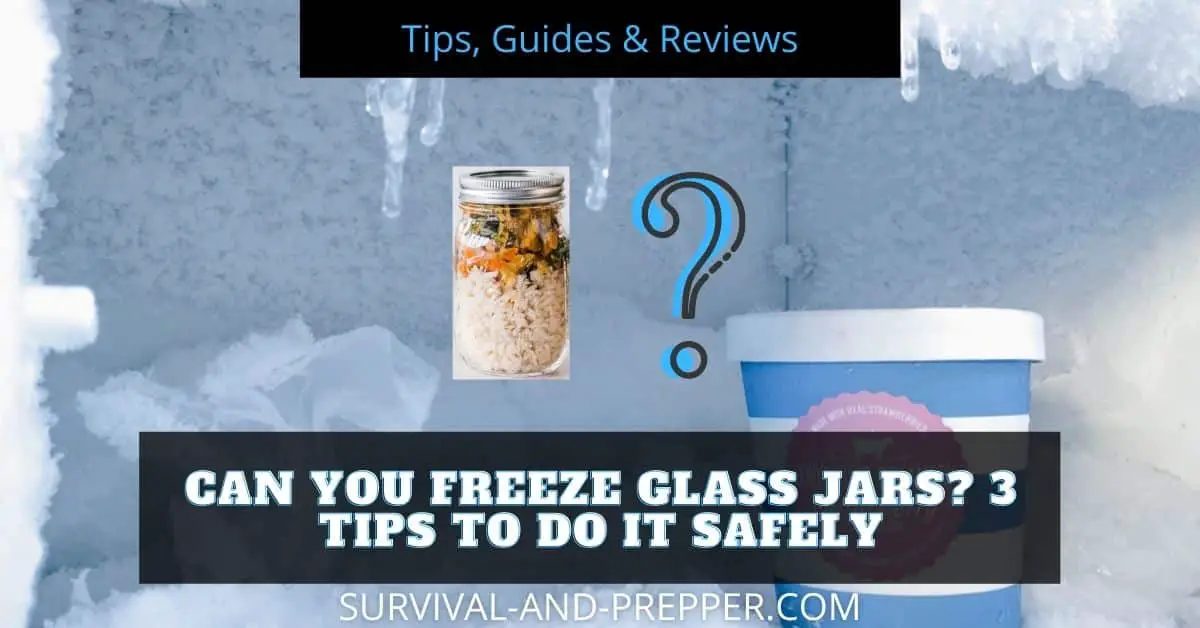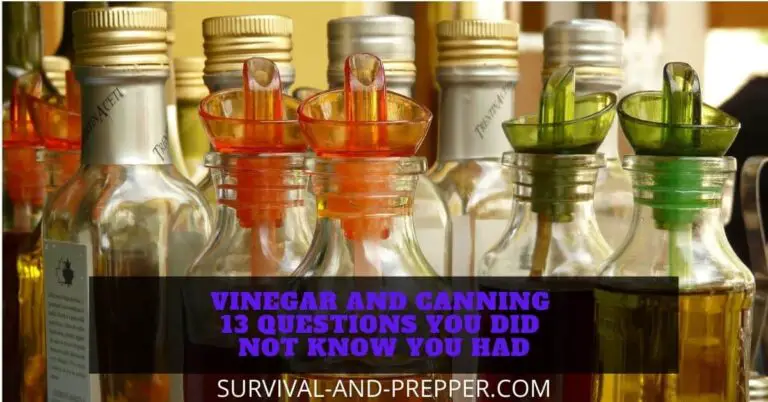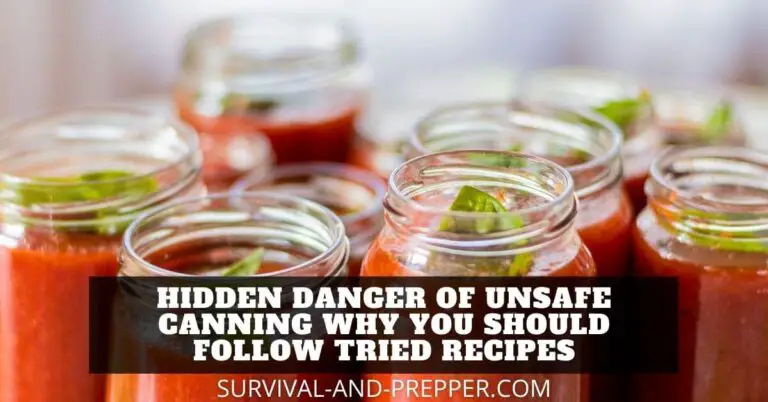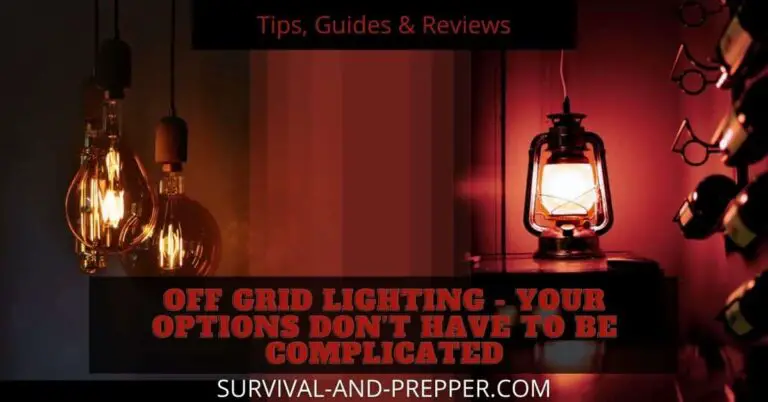Can You Freeze Glass Jars? 3 Tips to Do It Safely
Mason Jars the King of Food Storage
Nearly every prepper, homesteader or Southern Tea Drinker has mason jars around their home. These are perfect for canning foods, arts and crafts and even cooking cakes in. However, when it comes to storing frozen foods people tend to shy away from mason jars. This stems from the fact that they are not sure of the answer to “Can you freeze glass jars?”
Yes. You can freeze glass jars of almost any variety as long as a few precautionary steps are taken.
This largely comes from the fact that if care isn’t used then the jars could shatter in the freezer. However, with just a few precautions you can freeze mason jars with minimal risk of breakage.
Dehydrate your own survival food.
Why Glass Jars Shatter When Frozen
Besides the obvious dropping, there are two main reasons that a glass mason jar may shatter in your freeze.
The first is if the jar is too hot when it is placed into the freezer. When the hot glass is exposed to the sudden drop in temperature it causes it to cool too quickly. This rapid cooling results in internal stresses cracking the glass.
The second thing that causes mason jars to burst in the freezer is over filling. When a liquid is frozen it expands. If you fill your jar to the top and then put an airtight lid on it, you will likely have a cracked jar when you retrieve it from the freezer. This cracking of your mason jars is caused when the liquid inside expands and compresses the air. This expansion creates additional stress on the glass which result in the shattering.
3 Tips to Help You Safely Freeze Glass Jars
- Minimize Temperature Differences
You can reduce the chance of a jar breaking if you allow the jars to cool down before being placed into the freezer. If you add anything hot to your jar then make sure to let it remain on the counter for 15 to 20 minutes. This should allow the glass to cool enough that it won’t break.
If you are still concerned, place it in the fridge after the initial cool down, this temperature change is not as extreme. This slower cool down will help avoid having shattered glass jars.
- Reduce the Pressure in Your Jar
You can reduce the pressure in your jar by first first, leaving at least one inch of space between the contents of your jar and its lower lip. The lower lip is the area where the bottom of the ring will be once it is in place. The second tip to avoid broken jars is to use a flexible lid if possible.
There are several plastic and rubber options available for this. One thing I like to do is use a lid that has a straw slit. I can freeze the contents with the slit open and then close it once frozen to prevent freezer burn. This prevents the build up of pressure but still allows me to seal the jar.
The last option to avoid any pressure issues is simply to leave the lid off for the first 24 hours. The main drawback here is that you run the risk of spillage if a door is slammed. Then you can place the lid on and seal the jar.
- Consider the Contents you are Freezing
Mason Jars and other brands come in varying styles. If you are going to be freezing an item that is primarily a liquid then you are better off to use what is known as a wide mouth jar.
Wide mouth jars have an opening that is the same size as the throat or lidded area. This allows the frozen contents to slip out easily. If you were to use a traditional jar with a narrow throat then you would need to wait until the contents thawed out.
This need to wait causes many people to place their jars and frozen contents into warm water to thaw faster. This sudden temperature change frequently causes the jars to break contaminating your food with glass shards.
What Kind of Glass Jars are Safe for Freezing?
The ideal jar for freezing is a widemouthed jar that is made from tempered glass. If possible you want BPA Free Lids to avoid possible rusting. With that being said, you can use nearly any jar including ones that use to contain other foods such as olives, pickles, etc.
Why Do The Glass Jar Lids Rust if Put In The Freezer?
A lot of types of metal will rust when exposed to water. Most metal jar lids are made from steel which rusts easily due to the iron content. This process is compounded when put in the freezer due to the humidity levels commonly found as air cools and moisture is released around the freezer area.
If you plan to freeze jars frequently there are several options that you can purchase to avoid this rusting.
The first option are these Orblue Silicone Stretch Lids.(Amazon Affiliate Link for your Convenience) The Orblue Silicone Stretch Lids are food safe and can be stretched to fit snugly over most jar sizes. The main advantage here for freezing foods is the fact that these lids stretch. This stretching will allow the expansion of your food as it freezes without the build up of pressure. You can then swap out for a normal lid once the contents are frozen.
Option number 2 is a product called iLids. They come in either a solid topstyle or a top with a straw slit. Amazon Ad Links for convenience.
These are made from BPA free food grade polypropylene plastic. The straw slit on this style is an excellent option for those who like to drink from their mason jars. Though they tend to be a bit expensive for use as a primary storage lid.
The final option is a bulk alternative perfect for long term storage. They are just simple plastic white lids that are leak proof. Made from food grade, bpa free #5 polypropylene plastic they are safe to be stored in the refrigerator and freezer as they will not rust. On a side note, these should not be used for canning, only storing of frozen type foods or short term storage. You can pick up a pack of 24 for a great price here on Amazon(Ad).
Value Conclusion
I hope you found the answer to your question here and some possible solutions that would help you safely freeze food in glass jars.
While you are here make sure to check out some of our other articles. Don’t forget to sign up for our newsletter while your at it. You will receive special discounts to some of our affiliate partners.







Thanks for the information.
Thank you for the information. It reinforced what I knew.